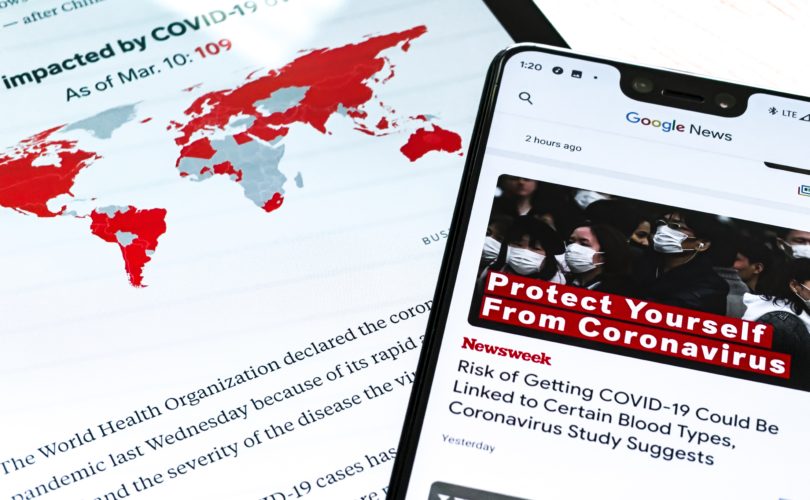At some point in my work with any given trauma survivor it comes up. Forgiveness is, at once level, a part of each healing process. Embracing God’s forgiveness of us and embodying that forgiveness relationally toward others is a distinctive of the Christian life. I don’t know of anyone who would say that forgiveness is a bad thing. I also sadly, don’t know of anyone who’s been abused who hasn’t had forgiveness weaponized against them.
To be sure, with all that the Southern Baptist Convention has gone through in the past few years and within other #churchtoo spaces, it will be a topic that we need to address. Probably more than once. There’s a tension in those two realities that I just pointed out and it’s one that’s going to need to be addressed in in the church from our living rooms and small groups to pulpits and counseling offices. So, the first question that I want to start off with is: what even is forgiveness?
The Decision
Perhaps the most basic way that I’ve heard forgiveness described is letting someone “off the hook” with you and putting them “on the hook” with God. In other words, it’s releasing them from our debt even while we acknowledge that their sin against us is a debt between them and God. The thing that strikes me most about this definition of forgiveness is just how heady and cognitive it seems to be. You simply make a decision and that’s that. No messy emotions and everyone moves on.
It’s also the preferred definition of abusers for exactly this reason. I’ll often hear abusers sidestep any real consequences for their actions or accountability from within the church by appealing to the “need to forgive” the abuser. What’s worse, the line briefs so well within surface-level Christianese conversation, that I’ve heard well-meaning Christians parrot it with no real critical thought about the power and control dynamic happening right in front of them all in the name of “forgiveness”. Make no mistake, forgiveness can’t be less than a decision but it absolutely must be more than that.
The State
At some point in our healing journey, we hopefully arrive at a place of acceptance and letting go. It’s a place where we realize that it is us who have been freed and that forgiveness is as much about releasing ourselves as it is about releasing the other. It’s the stuff that really terrible memes and great movie endings are made of and I can tell you that it does in fact exist.
It’s not wrong, or even unreasonable, to want to be here or to want the ones we love to get here. What’s wrong, unreasonable, and even harmful is assuming that the journey from the decision to this state of forgiveness is a straight line or that we should move straight from the former to the latter. In fact, that never happens and it’s what does that tends to get people, especially Christians, hung up.
The Messy In-Between
There have been seasons of my own life where forgiveness has been a daily, at times hourly, decision. During those times it looks noting like a state of blissfully enlightened acceptance and moving on. There’s no movie score playing in the background to herald your passing into a new stage of growth and healing. You know what there is a LOT of?
Anger, hurt, shame, confusion, more anger, longing, denial for a few minutes, more shame, a feeling that you might actually be the crazy one, loneliness, and more anger and shame.
The decision to forgive is a valid part of forgiveness. The place of acceptance and release is a real destination for forgiveness. But mane no mistake, the vast majority of the process of forgiveness is much more messy. This is where we tend to botch the conversation on forgiveness in the church in general at times and really shoot ourselves in the foot when talking about abuse and forgiveness in the church.
How We Can Miss the Mark in the Church
Sometimes we want to fix something so badly that we skip right over what’s wrong. You’ve seen this happen, maybe even been a recipient of it. Something terrible happens, perhaps a loved one passes away or you lose your job and your well meaning Christian friend jumps in with a Romans 8:28 reference “Well, you know God works all things together for the good…”.
True. Also massively unhelpful.
When someone discloses abuse, we often feel an impulse to rush to the decision or end goal of forgiveness so quickly that we miss the process which involves grieving, feeling all the emotions, many of which may have been stuffed down for a long time and even just stabilizing and beginning the healing process enough to start to process all of that.
And all of that is assuming that the person is safe and out of the abusive situation which they may very well not be, in which case that’s the first step.
Addressing Forgiveness with the Abused
We have a lot of work to do in the church in America at large and within the SBC when it comes to abuse. We’re at an hour of reckoning for sins covered up and injustices carried out. When it comes to just this one piece of the conversation, it’s important that we not rush in to “fix it” with language of “forgiveness” before we’ve assessed where the person in front of us is at in their own process and what’s needed next. That part’s important. Just because something will be a part of someone’s healing journey at some point, doesn’t mean it’s what’s most helpful or even possible right now.
Of all the things I could tell you about walking with a trauma survivor through their healing journey, the single most important might be this: be present with them where they are, not where you’d like them to be. Accept that you’re going to have your own emotions, thoughts, and desires, and that they (while valid) do not get to determine the healing path that God has someone on or its pace. Above all else, remember that you are both a vehicle for and recipient of God’s grace when you walk this path with a survivor and this truth is for both of you: Because God’s grace is inexhaustible, our neediness for it can be too.


